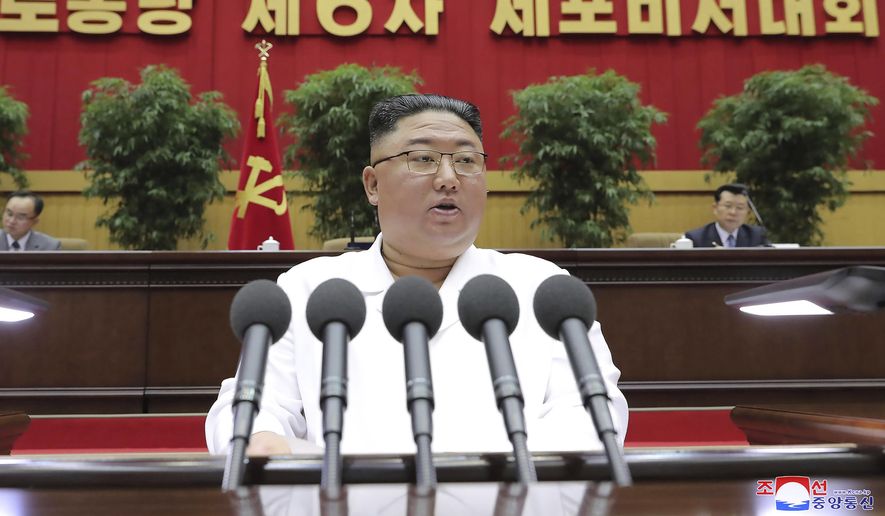Russia’s top diplomat in North Korea is downplaying claims by Kim Jong-un that the North Korean economic situation has become so dire it now compares to the 1990s famine that killed hundreds of thousands in the isolated nation.
“The most important thing is that there is no famine in the country today,” said Russian Ambassador Alexander Matsegora, one of a small number of foreign envoys allowed by the Kim regime to operate diplomatically in Pyongyang.
While Mr. Matsegora said this week that North Koreans are facing serious hardships under international sanctions — and “extra-harsh anti-epidemic measures” that are being imposed by the Kim regime to combat COVID-19 — the ambassador stressed the situation “cannot compare to the calamity that hit the country” during the 1990s famine.
His remarks, in an interview with Russia’s Tass news agency, came days after Mr. Kim spurred international speculation and scrutiny by calling for another “arduous march” to fight severe economic difficulties — for the first time comparing the current situation in North Korea to the famine of the 1990s.
While Mr. Kim has previously described the circumstances in North Korea as the “worst-ever” situation due to the coronavirus pandemic, U.S.-led sanctions and heavy flooding last summer, the famine reference last week indicated an escalation in rhetoric by a regime known to carefully weigh every public statement it makes.
Some analysts opine the North Korean dictator may have exaggerated in a bid to spur openings for the flow of aid and goods into the country tightly restricted by international sanctions. Others say the situation is so dire and that Mr. Kim is simply warning his government to prepare for ongoing hardship.
North Korea monitoring groups haven’t detected any signs of mass starvation or a humanitarian disaster, according to The Associated Press, which maintained that Mr. Kim’s recent comments suggested how seriously he views the current difficulties that many foreign observers believe are the biggest test of his nine-year rule.
“There are many obstacles and difficulties ahead of us, and so our struggle for carrying out the decisions of the Eighth Party Congress would not be all plain sailing,” Mr. Kim told lower-level ruling members of his ruling Workers’ Party last week, according to state media.
“I made up my mind to ask the WPK (Workers’ Party of Korea) organizations at all levels, including its Central Committee and the cell secretaries of the entire party, to wage another more difficult ‘arduous march’ in order to relieve our people of the difficulty, even a little,” he said.
The term “arduous march” is a euphemism that North Koreans use to describe the struggles during the 1990s famine, which was precipitated by the loss of Soviet assistance, decades of mismanagement and natural disasters. The exact death toll isn’t clear, varying from hundreds of thousands to 2 million to 3 million, and North Korea depended on international aid for years to feed its people.
• This article is based in part on wire service reports.
• Guy Taylor can be reached at gtaylor@washingtontimes.com.




Please read our comment policy before commenting.